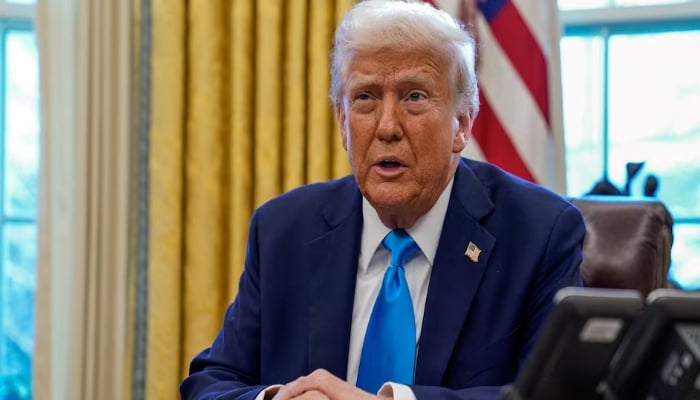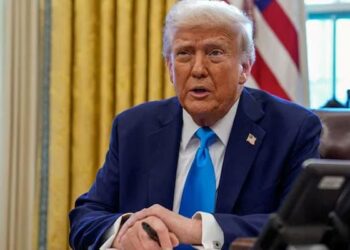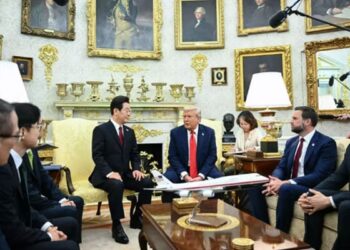Select Language:
Trump Administration Warned on Deportation of Venezuelan Migrants
February 4, 2025 — Washington D.C.
A federal judge in the United States has issued a stern warning to the Trump administration regarding the deportation of Venezuelan migrants, indicating there may be repercussions if the court’s temporary halt on such actions is disregarded. The administration has been given additional time to clarify its decisions and actions surrounding the deportation flights.
U.S. District Judge James Boasberg, who presides over cases in Washington, expressed skepticism about the administration’s claims that complying with the court order would threaten national security. His remarks came after Secretary of State Marco Rubio posted details about the flights on social media platform X.
This recent ruling highlights the ongoing tensions between the judicial system and the Trump administration. In response to the situation, President Trump has called for Boasberg’s impeachment, prompting a rare criticism from Chief Justice John Roberts.
Boasberg, appointed by former President Barack Obama, is assessing if the administration failed to adhere to his recent ruling, which temporarily blocked the deportation of numerous individuals associated with alleged Venezuelan gang activities, under a law from the 18th century.
Despite the order, three aircraft transporting deported Venezuelans arrived in El Salvador, where the migrants are currently being detained. Judge Boasberg has requested specific details regarding the timings of the departures and arrivals of the initial flights but assured that this sensitive information would not be disclosed publicly. In response, the Trump administration has accused him of exceeding his authority.
In a court filing dated Wednesday, the administration characterized the judge’s inquiries as serious infringements upon the fundamental powers of the Executive Branch, arguing that these issues overstep judicial boundaries.
Boasberg then proceeded to grant an extension for the administration to respond. He emphasized that his request for information was aimed at understanding whether the government intentionally violated his orders, rather than a "judicial fishing expedition," as claimed by the administration. Although he has not specified potential consequences, the implications are clear.
Trump Labels the Judge a ‘Troublemaker’
Critics of Trump and various legal commentators have raised alarms about a possible constitutional crisis if the administration chooses to ignore judicial rulings, as the Constitution stipulates that the executive and judicial branches hold equal authority.
During an interview on Fox News’ The Ingraham Angle, Trump maintained that his administration would comply with court directives and expressed confidence that the Supreme Court would rule in their favor regarding the deportation of Venezuelan migrants.
However, Trump has not held back in his criticism of Judge Boasberg. He labeled the judge a "troublemaker and agitator" on social media and reiterated calls for his impeachment—an action that is unlikely to gain traction in Congress.
Boasberg was confirmed to the federal bench in 2011 with overwhelming bipartisan support, receiving a 96-0 vote from the Senate.
Chief Justice Roberts responded to Trump’s impeachment remark by emphasizing that appealing a judicial decision is the proper channel for expressing disagreement, not pursuing impeachment.
Administration Defends Deportation Efforts
On Saturday, Boasberg announced a two-week suspension of the deportations, stating that the Alien Enemies Act of 1798 did not support Trump’s assertion that the existence of the Tren de Aragua gang represented a state of war.
During a court hearing held when two planes were already airborne carrying deported migrants, Boasberg instructed Justice Department attorneys that any flight with deportees affected by his ruling should return immediately to the U.S. An official order was filed shortly after, approximately 40 minutes following his verbal ruling. Unfortunately, the two planes arrived in Honduras and subsequently continued onto El Salvador.
A third deportation flight took off after Boasberg’s order was made public. Justice Department attorneys countered in court documents that the judge’s verbal instructions were not enforceable and asserted that the deportees aboard the third flight were not solely being deported under the Alien Enemies Act of 1798.
As of now, neither the Justice Department nor the State Department has provided comments on the unfolding situation.






